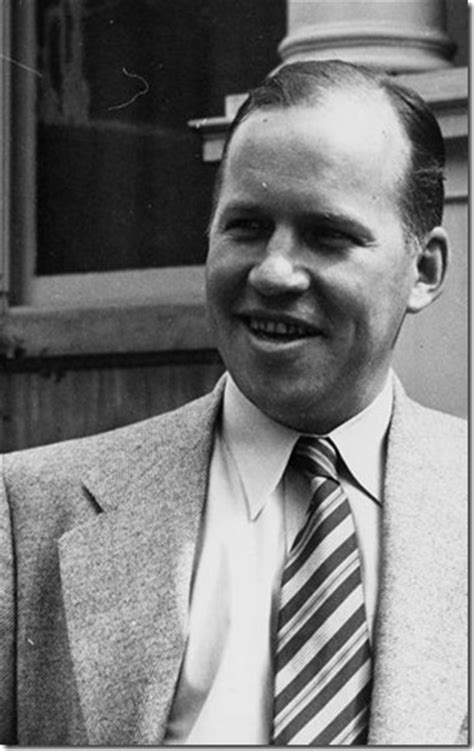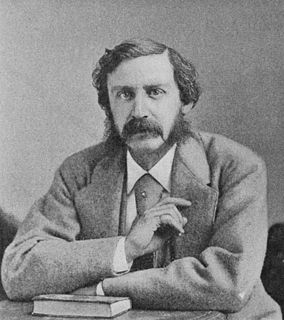A Quote by Hal Boyle
Probably no one alive hasn't at one time or another brooded over the possibility of going back to an earlier, ideal age in his existence and living a different kind of life.
Related Quotes
If we apply the term revolution to what happened in North America between 1776 and 1829, it has a special meaning. Normally, the word describes the process by which man transforms himself from one kind of man, living in one kind of society, with one way of looking at the world, into another kind of man, another society, another conception of life.... The American case is different: it is not a question of the Old Man transforming himself into the New, but of the New Man becoming alive to the fact that he is new, that he has been transformed already without his having realized it.
God was alive when this universe exploded into existence. He was alive when Socrates drank his poison. He was the living God when William Bradford governed Plymouth Colony. He was the living God in 1966 when Thomas Altizer proclaimed him dead and Time magazine absolutely absurdly put it on the front cover.
The error which underlies the very existence of this debate is that there is some kind of perfect Platonic form of the computer language, which some real languages reflect more perfectly than others. Plato was brilliant for his time but reality is not expressable in terms of arbitrary visions of perfection, and furthermore, one programmer's ideal is often another's hell.
What I think is that a good life is one hero journey after another. Over and over again, you are called to the realm of adventure, you are called to new horizons. Each time, there is the same problem: do I dare? And then if you do dare, the dangers are there, and the help also, and the fulfillment or the fiasco. There's always the possibility of fiasco. But there's also the possibility of bliss.
To the future or to the past, to a time when thought is free, when men are different from one another and do not live alone— to a time when truth exists and what is done cannot be undone: From the age of uniformity, from the age of solitude, from the age of Big Brother, from the age of doublethink — greetings!
Destiny was a machine built over time, each choice that you made in life adding another gear, another conveyor belt, another assemblyman. Where you ended up was the product that was spit out at the end—and there was no going back for a redo. You couldn?t take a peek at what you?d manufactured and decide, Oh, wait, I wanted to make sewing machines instead of machine guns; let me go back to the beginning and start again. One shot. That was all you got.
I call it "being interrupted by success." We had done The Soft Bulletin, which came out in 1999, and we knew we that were gonna make another record before too long. But in between this, we were still in this mode of kind of just - not re-creating what we could be, but kind of doing different things. For the longest time in the Flaming Lips we were like, "Make a record, go on tour. Come back, make another record," and you know, I think, frankly, we were kind of like, "There's more to life than just recording records and going on tour."
This is why we shouldn't be afraid. There are two possibilities: One is that there's more to life than the physical life, that our souls "will find an even higher place to dwell" when this life is over. If that's true, there's no reason to fear failure or death. The other possibility is that this life is all there is. And if that's true, then we have to really live it - we have to take it for everything it has and "die enormous" instead of "living dormant," as I said way back on "Can I Live." Either way, fear is a waste of time.

































